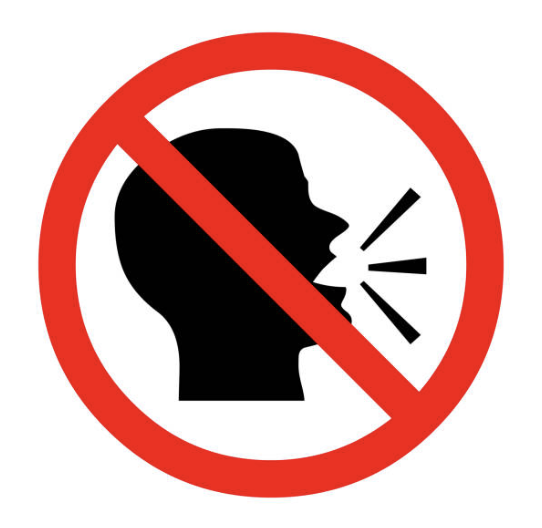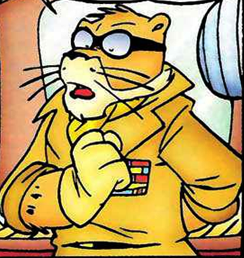Don’t really know how to explain this. I like sci fi and would love to dig deeper into it. Am avid reader and enjoyed Project Hail Mary (though set in space, this book is just amazing), Dune, short stories by Ray Bradbury and TV shows like Raised by the Wolves, Westworld, From (love From!). But e.g. Foundation I really disliked. Wheel of time is massive and I lost interest. Even the guide through galaxy I appreciated but was not really into it. Somehow, all those lots of traveling, lots of worlds, lots of many novel/invented names and terms render reading laborious for me.
Can you help me pin what is that I like and perhaps offer me a suggestion where to start? Thanks!
EDIT: thanks everyone for your excellent suggestions! So happy to be a part of lemmy community. I might make a follow up thread in couple of months so we can discuss some of the works. And lastly, if you been reading this far: have a good weekend.
Try some cyberpunk stuff, it’s great “local” sci-fi, with hardly any of that muck you don’t like.
“Neuromancer” - William Gibson
“Snow Crash” - Neal Stephenson
“Do Androids Dream of Electric Sheep?” - Philip K DickWhy is it always those 3? Is there no other cyberpunk books people read? They are very heavy reads. Heres a few “mediocre” cyberpunk books I found entertaining, everyone takes place on earth:
- “A cyberpunk saga” by Matthew Goodwin, if you prefer teamwork and strong friendship. And a VERY stereotypical cyberpunk world.
- “Daemon” by Daniel Suarez, a techno triller, if you enjoy overly “smart” villains who think multiple moves ahead.
- “Immortality Upload” by Patrick Fell, if you like MMOs and VR.
- “Neo Cyberpunk”, a genre anthology book. Multiple short stories. I found Matthew Goodwins books because I enjoyed his short story.
Even better, The Big Book of Cyberpunk comes out next month.
Cool! Thanks for the tip, choomba!
I just read Nexus, which is called post cyberpunk.
I assume its this one by Ramez Naam? Looks cool.
It’s really good, especially if you like technothrillers.
Yes, that’s it
Dune is an example of massive world-building with a tons of jargon, but you still liked it? It seems that this post is saying you don’t like books like Dune, so how did you manage to enjoy it?
How about The Expanse or The Martian? They’re both relatively hard sci-fi that focuses mostly on our own solar system.
The Martian tells the tale of a man stuck on Mars and his ability to survive on his own whilst those back on Earth figure out a way to get him back. Both the book and the film are great so you can’t go wrong with either.
The Expanse covers more of the local system. Earth and Mars are on the brink of war, whilst others live out near the asteroid belt, Jupiter and beyond. It goes a little sci-fi later on but it’s an inherently human story that has some great characters living in a time when space travel is still dangerous but achievable by humanity. It starts a little slow but ramps up brilliantly and has a nice conclusion that wraps everything up pretty neatly. You’ve got 9+ books, a 6 season TV series on Amazon Prime, and a newly released TellTale video game, all of which are well produced and worth investing time in.
The Martian I am saving as one of those cannot go wrong books, in case i ever run into reading blockage. But Expanse i didn’t check out. Will do now. Thanks
Ursula K. Le Guin is an example of a writer that does deep but focused worldbuilding. Her sci-fi books tend to be about a single planet, sometimes two like in The Dispossesed. You could try that one or even better start with The Left Hand of Darkness. I like how she sets up various unusual alien factors (geopolitics, biology, society, natural environments) and lets them interplay but also without forgetting a plot.
She keeps popping up so I think I really have to check her out. :)
I suggest Becky Chambers, The Long Way to a Small, Angry Planet. The whole series is good but each is stand alone. There is a world and it’s in space but the stories are people scale.
deleted by creator
I was hoping someone would mention this series!
A Canticle for Leibowitz
This is such a good recommendation really, I have to elaborate why: I love The Stand (rebuilding the society), Heart is a Lonely hunter (american southwest) and 1000 years of solitude (story that spans across number of generations). So thanks!
Yes, or for something I enjoyed much more, Anathem by Neal Stephenson.
A great book, but it certainly includes a lot of invented vocabulary to deal with, and the reader is expected to just roll with it and sort the vocabulary out on their own.
Maybe take a look at post apocalyptic sci Fi (https://en.m.wikipedia.org/wiki/Apocalyptic_and_post-apocalyptic_fiction), as it includes a lot of interesting futuristic tech, but it is mostly limited to earth. There’s probably another category where things like blade runner fit too
Hey thanks for this, excellent resource! (Cozy catastrophe is def my new favorite genre name)
If that’s the case, try The Road.
Just finished it a week ago. That prose… From another planet.
He’s so good. Too good - reading Blood Meridian was like having my face dragged across fresh gravel, but in a good way, somehow?
Have you tried Asimov’s short stories? ‘I, Robot’ is mostly logic problems presented in a dramatic way. Good read.
I Thoroughly enjoyed The Dispossessed by Ursle leGuin. Just enough world building to destroy it all in the narrative.
I just want to put this out here, to ponder…it’s essentially a skill to be able to juggle and take in new jargon and stuff. It’s something you learn. I learned it as a child, so it’s second nature to me–but there was absolutely a time when I struggled!
So the question is: Do you want to develop that skill? (You don’t have to answer me, I’m just proposing the question so you can ponder it.) I’m assuming here when you say the complexity is what puts you off, that this is accurate. And maybe it is. But there’s a bit of a slog initially when reading SFF where you have to power through to gain the skill to follow these things–you’re literally training your mind to take in new data in a way that doesn’t much happen outside of SFF.
But also…what if the reason you bounced off the books listed is something else? What if it’s not complexity, but the delivery? The style of narration or prose? A lot of the works you list MANY people bounce off, not due to complexity but due to the authors’ voice and delivery.
I myself can’t get into WoT or the book version of Game of Thrones or Foundation. I can’t get into Tolkien either. Which is an abject sin in some circles!
But it’s not because those books are complicated. Or because of the jargon. I’m fine with both in many other books, and disliking certain well-known behemoths of SFF doesn’t negate that I read things like The Quantum Thief by Hannu Rajaniemi (which was pretty darn confusing and complicated) or Gideon the Ninth. Or all the stuff I read as a kid.
It’s because the specific writing style turns me off. Asimov, for example, is kinda known for his cardboard characters. Tolkien world-builds like an academic, and a lot of his stuff is a huge slog like much dry research in academia. Wheel of Time likewise doesn’t have that “something” in style or voice to make his worldbuilding engaging, nor does George R. R. Martin’s Game of Thrones.
But I am a huge fan of authors who make big, complicated worlds who have a more interesting/engaging way of presenting what they have created. It’s not the complexity or jargon that puts me off in those other books, it’s the writing style.
Maybe it’s the same with you?
Yes, yes, you are totally correct - delivery can make all the difference.
But I have to add that my main problem is that I am a scientist and big part of my job is to read immense amount of literature and memorize/connect often obscure terms. So when I read for pleasure (I love my job, but still) what I tend to enjoy the most are character heavy, emotional books with beautiful prose, written by people with deep understanding of life. Quite opposite to the academic literature.
So you are right, yes, this slog issue is not restricted to SF (e.g. I don’t read epic fantasy either; GoT and LOTR books I skipped myself as well), but SF in particular is something I really want to dig deeper, as there the ideas challenge my brain and remain lingering far after I finish the piece.
But! - I prefer to do it without being forced into a memory challenge. Because if I start and within the first two pages there are 15 names and 3 planets and lots of traveling (i really damn hate descriptions of pure traveling, like please lets just skip that part) then I lose interest in the main idea and the ideas are what I am after.
So Tldr yes, you are absolutely right, it is also the prose and the delivery, but still no prose or delivery would keep me long motivated or make me deeply enjoy reading work which has too many names or weird, invented terms.
You also listed fantasy, so I’d like to recommend N.K. Jemisin. She won the Hugo award for a novel 3 years in a row for her first 3 books, and has I think 2 more? So 5 Hugo’s on 7 years?
Those three books are called the Broken Earth trilogy, starting with The Fifth Season, and it’s probably my favourite trilogy. (Not correcting, just adding detail so they are easier to find). The magic system here always feels very specific and ‘grounded’ (heh), so it doesn’t feel like the fluffy magic of more “high fantasy”, and maybe connects more with sci-fi sensibilities? Anyway, i agree that it’s excellent.
OP could also look at Ursula Le Guin. The Earthsea books are amazing, very low-key and character focused. More in the fantasy space too though, but so is Dune pretty much. She also has Left Hand of Darkness, which was great and more on the sci-fi side (no actual space travel or other planets, aside from references), particularly if they have any interest in a kind of meditation on cultural differences and gender.
I’m really enjoying the Wool Trilogy my Hugh Howey. It’s maybe more dystopia than sci-fi but in the same vein for sure.
The All Guardsmen Party.
The Windup Girl
The Water KnifeBoth by Paolo Bacigalupi - I’d describe both as ecological dystopian near-future sci-fi - both books are exceptional and based on Earth.
deleted by creator






